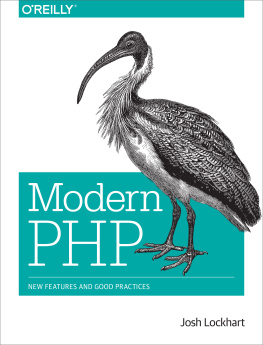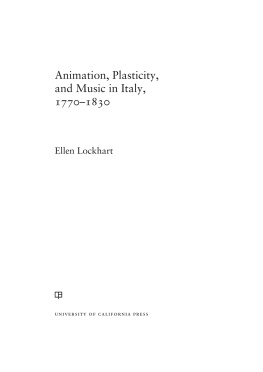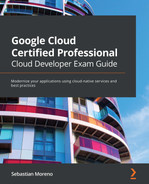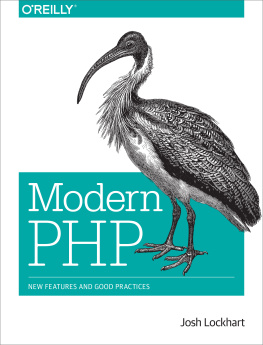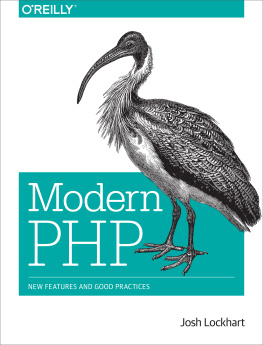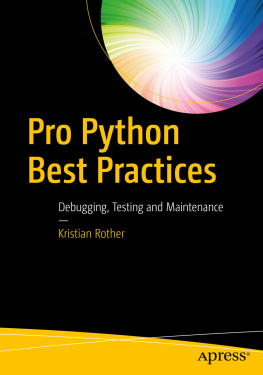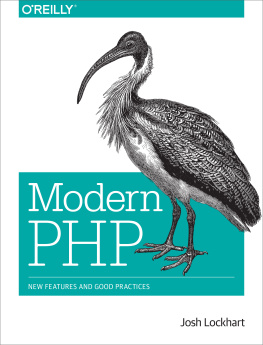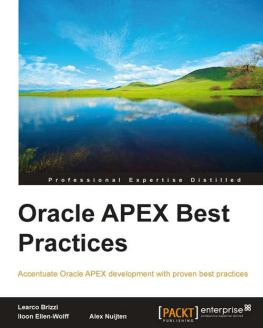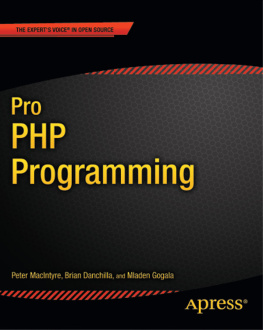Lockhart - Modern PHP: New Features and Good Practices
Here you can read online Lockhart - Modern PHP: New Features and Good Practices full text of the book (entire story) in english for free. Download pdf and epub, get meaning, cover and reviews about this ebook. City: Beijing, year: 2015, publisher: OReilly Media, Inc, genre: Romance novel. Description of the work, (preface) as well as reviews are available. Best literature library LitArk.com created for fans of good reading and offers a wide selection of genres:
Romance novel
Science fiction
Adventure
Detective
Science
History
Home and family
Prose
Art
Politics
Computer
Non-fiction
Religion
Business
Children
Humor
Choose a favorite category and find really read worthwhile books. Enjoy immersion in the world of imagination, feel the emotions of the characters or learn something new for yourself, make an fascinating discovery.
- Book:Modern PHP: New Features and Good Practices
- Author:
- Publisher:OReilly Media, Inc
- Genre:
- Year:2015
- City:Beijing
- Rating:4 / 5
- Favourites:Add to favourites
- Your mark:
Modern PHP: New Features and Good Practices: summary, description and annotation
We offer to read an annotation, description, summary or preface (depends on what the author of the book "Modern PHP: New Features and Good Practices" wrote himself). If you haven't found the necessary information about the book — write in the comments, we will try to find it.
Author Josh Lockhart--creator of PHP The Right Way, a popular initiative to encourage PHP best practices--reveals these new language features in action. Youll learn best practices for application architecture and planning, databases, security, testing, debugging, and deployment. If you have a basic understanding of PHP and want to bolster your skills, this is your book.
Learn modern PHP features, such as namespaces, traits, generators, and closures
Discover how to find, use, and create PHP components
Follow best practices for application security, working with databases, errors and exceptions, and more
Learn tools and techniques for deploying, tuning, testing, and profiling your PHP applications
Explore Facebooks HVVM and Hack language implementations--and how they affect modern PHP
Build a local development environment that closely matches your production server
Lockhart: author's other books
Who wrote Modern PHP: New Features and Good Practices? Find out the surname, the name of the author of the book and a list of all author's works by series.

